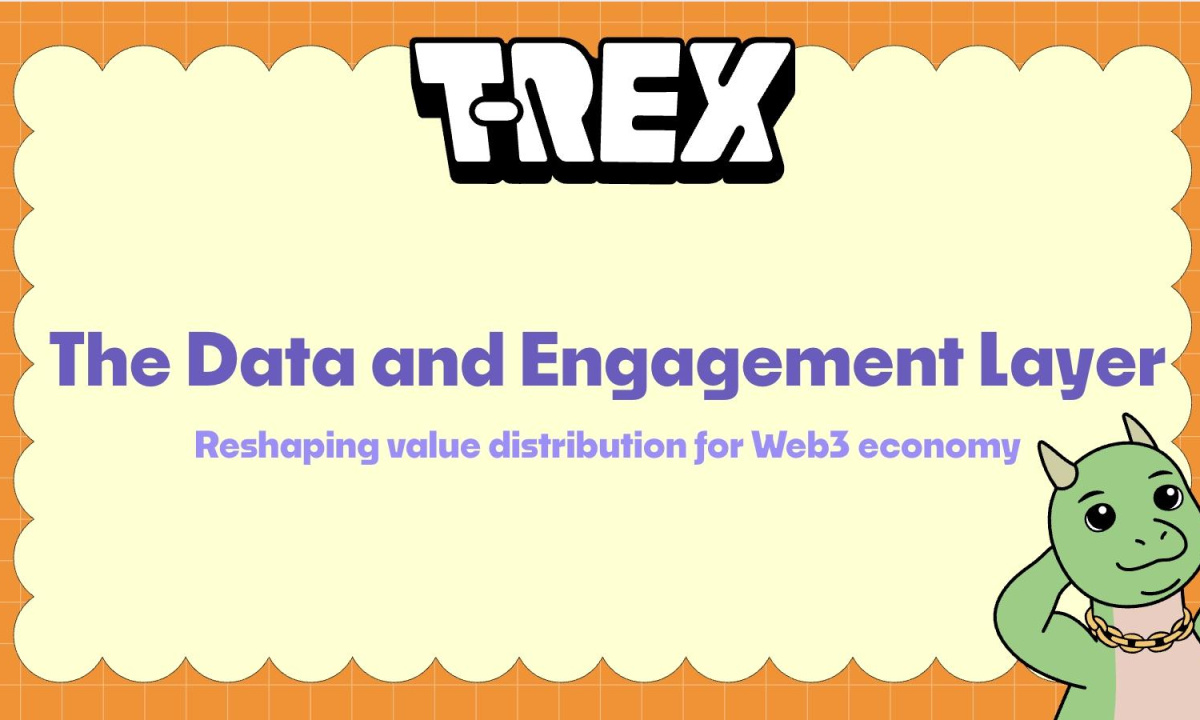T-REX Unleashes Intelligence Layer: The Fix for Web3’s Broken Value Distribution System
Web3's dirty little secret just got exposed—and potentially solved.
T-REX's new intelligence layer targets the fundamental flaw in decentralized ecosystems: value flows to the wrong places. The system rearchitects how rewards distribute across networks, cutting out middlemen who've been skimming value while actual contributors get scraps.
How It Actually Works
The layer uses smart contract automation to redirect value streams based on real contribution metrics. No more whales vacuuming up token rewards while builders struggle. The protocol identifies genuine network participants and routes value accordingly—bypassing the passive accumulators that have dominated Web3 economics.
Why This Changes Everything
Current Web3 value distribution resembles traditional finance's worst habits—consolidating wealth at the top while pretending to be democratic. T-REX's approach could finally align incentives with actual ecosystem growth rather than speculative positioning. It's about making the 'value' in value proposition mean something beyond price charts.
The timing couldn't be sharper. As traditional finance institutions circle Web3 like vultures, proving that decentralized systems can actually distribute value fairly becomes existential. This isn't just another protocol upgrade—it's a necessary evolution before Web3 becomes Wall Street with blockchain frosting.

T-REX, a new data and engagement infrastructure for Web3 building on Arbitrum, today announced the launch of its platform aimed at addressing one of the industry’s most persistent challenges: inefficient value distribution.
With $17 million from investors, including Arbitrum Gaming Ventures, Framework Ventures, North Island Ventures, and Portal Ventures, T-REX introduces an “intelligence layer” for Web3, a data-driven system designed to connect projects with users more effectively, strengthen community growth, and improve the long-term health of token ecosystems.
Crypto’s technical foundations have evolved rapidly, with faster chains, lower fees, and scalable settlement. But the distribution of value, including the FLOW of incentives, rewards, and attention, across Web3 remains structurally flawed.
Many token launches see early activity followed by steep declines in price and community engagement. Current mechanisms tend to over-reward short-term participants while overlooking genuine long-term contributors.
“Airdrops and point systems have become blunt instruments. They often attract mercenary actors rather than genuine participants, leading to high cost and weak retention,” said Joyce Yim, CEO and Cofounder of T-REX.
T-REX’s answer is the, a multi-dimensional, privacy-preserving profile that represents users across demographics, assets, social signals, interests, and knowledge. Unlike static DID solutions, these personas evolve with user behavior, creating a more accurate representation over time.
These profiles feed into the platform’s, a feedback loop that matches the right users to the right projects, calibrates incentive levels, and measures actual contribution. Outcomes are then fed back to refine future campaigns and activities, reducing fraud and increasing return on investment.
Identity and engagement tooling is a crowded corner of Web3, with decentralized identifiers (DIDs), questing platforms, and analytics providers competing for mindshare. T-REX positions itself as distinct by combining identity, attribution, and incentive distribution into a single compounding system.
“Most tools today focus on one piece of the puzzle — whether it’s identity verification or campaign management. We are building the infrastructure that connects them so that value can Flow more efficiently across the entire ecosystem,”.

As part of its ecosystem, T-REX plans to launch, a 3,333-piece NFT collection on Arbitrum, scheduled for release in October. Rexy is the first contribution-proof NFT, deeply integrated with T-REX’s Core intelligence engine.
Rexy will not be publicly sold; instead, Rexy’s distribution logic is tied to the platform’s data systems. The Intelligence Flywheel continuously analyzes user personas to identify participants who have made significant, verifiable contributions to Web3 and closely align with the long-term ecosystem value.
The collection will be distributed via an invite-only whitelist to participants who have demonstrated significant contributions in Web3 or within the T-REX ecosystem.
T-REX describes this as a shift from NFTs as collectibles to NFTs as cultural markers of verified achievement.
T-REX is building a new data and engagement LAYER for Web3, designed to reshape value distribution across the entire ecosystem. Centered on multi-dimensional user personas and recommendation algorithms, T-REX provides an on-chain intelligence engine to address the structural inefficiencies that have long plagued Web3 economics.
Developed by EVG and supported by leading investors including Arbitrum Gaming Ventures, Framework Ventures, North Island Ventures, ArkStream Capital, Mindfulness Capital, and Portal Ventures, T-REX offers creators and developers a UX-first infrastructure with integrated discovery, rewards, and distribution features — empowering the users to participate, contribute, and build on-chain.
https://trex.xyz
https://x.com/TREX_chain
ContactThis article is not intended as financial advice. Educational purposes only.

